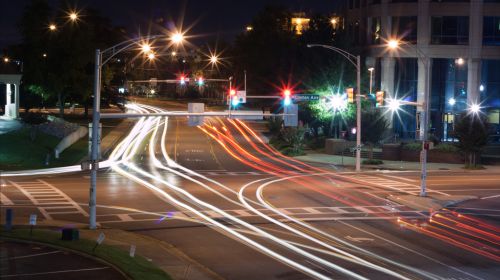
Today we sued the federal government to enforce Freedom of Information Act requests we filed over the summer to learn about how it is using a technology that can track Americans’ location with increasing efficacy: automated license plate readers. (See today’s legal complaint, our original FOIA requests, and a blog we posted when we made those requests.)
We know about the rapid expansion of this technology to be very concerned about it, but there’s a lot we don’t know.
That is why ACLU affiliates from 38 states and Washington, D.C. filed records requests in July 2012 with their state and local police departments to find out how they are collecting, sharing, and storing our location data using these systems. The national ACLU and the ACLU of Massachusetts also filed FOIA requests with the federal departments of Transportation, Justice, and Homeland Security to get answers to questions such as:
Do federal agencies operate their own license plate readers?
What kind of data do they retain, for how long, and with whom is it shared, and what are the privacy policies protecting the data?
What is the legal justification for the deployment of the technology?
Do agencies use the information they collect or obtain from third parties to data mine, looking for “suspicious patterns”?
Is license plate data stored in other federal databases, such as the FBI’s biometrics , alongside other personally identifiable information?
We also asked about how the federal government is working with state and local law enforcement on license plate readers. For example, how much money has the federal government doled out to state and local police for the purchase of automatic license plate readers? Can the federal government access license plate data held by local police departments, and if so, what are the policies on such sharing?
The limited publicly available information suggests that some federal agencies are moving full speed ahead with their own license plate data collection, but we did not receive answers to most of our questions. By law, federal agencies are required to respond to a FOIA request within 20 working days. But only one of the offices under DOJ responded substantively to our request for records; neither DHS nor the other targets of our request at DOJ—among them the FBI—have sent us anything at all. So we have filed suit in an attempt to get the agencies to comply with the law.
We did get a few documents from some DOT agencies, though we do not believe they gave us everything they have (the agency’s Volpe Center, for example, has a wealth of references to ALPR on its , yet provided no documents). Because DOT did provide some documents, we must administratively appeal its response before we can file suit; we are doing that.
When it comes to pervasive electronic monitoring, privacy advocates are often asked: “If I’m not doing anything wrong, why should I care?” Perhaps the question would be better directed to the three government agencies that have yet to appropriately respond to our FOIA request: “If you’re not doing anything wrong, what do you have to hide about automatic license plate readers?”
The public deserves to know how federal law enforcement and transportation authorities are using tax dollars, not least when their use may threaten our privacy on the open road. As Supreme Court Justice Louis Brandeis famously said, “sunlight is the best disinfectant.”

